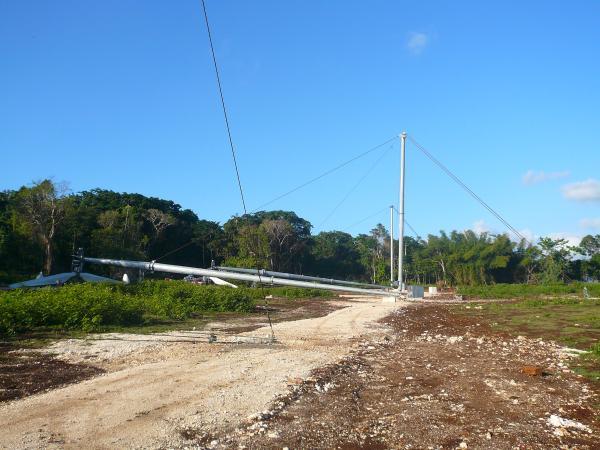
Construction of a 2.75MW wind farm on the island of Efate, Vanuatu; the first wind farm to be implemented in Vanuatu
Improving assessment of climate risk and strengthening project resilience to a changing climate is crucial to better adapt to climate change. To better share experience and insight into integrating climate change adaptation into project planning and implementation experts from the European Investment Bank and six other European partners involved in climate finance have jointly developed a new practical guide.
Entitled Integrating Climate Change Information and Adaptation in Project Development: Emerging Experience from Practitioners the guide seeks to help practitioners assess climate change risks and vulnerabilities and better integrate structural or non-structural adaptation measures into project planning, design and implementation. The overall aim is to help make projects and investments more resilient to the effects of climate change and to implement adaptation measures that reinforce the climate resilience of goods, people, economies and territories of the beneficiaries.
The Paris Agreement on climate change, adopted in December 2015, adds momentum to the need for practical approaches in support of climate change adaptation, in order to scale up action on strengthening climate resilience. The emerging experience of experts from European financing institutions and the European Commission provides insights into how these climate issues can be best integrated into project development and implementation.
The note is based on the emerging experience of experts from seven European institutions working together under the umbrella of the European Financing Institutions Working Group on Adaptation to Climate Change (EUFIWACC).
The group comprises Agence Française de Développement (AFD), the Council of Europe Development Bank (CEB), the European Bank for Reconstruction and Development (EBRD), the European Commission’s Directorate-General for Climate Action (DG CLIMA), the European Investment Bank (EIB), KfW Development Bank (KFW), and the Nordic Investment Bank (NIB).
The note further benefited from the technical expertise of experts from the JASPERS partnership (Joint Assistance to Support Projects in European Regions) and the Climate Service Center Germany (GERICS), as well as an advisory group of consultancies.
The group considers the document a continuous learning process that should and will evolve in a context where new tools for decision-making under uncertainty are needed, and where the track record regarding best practices or specific due diligence is still developing.